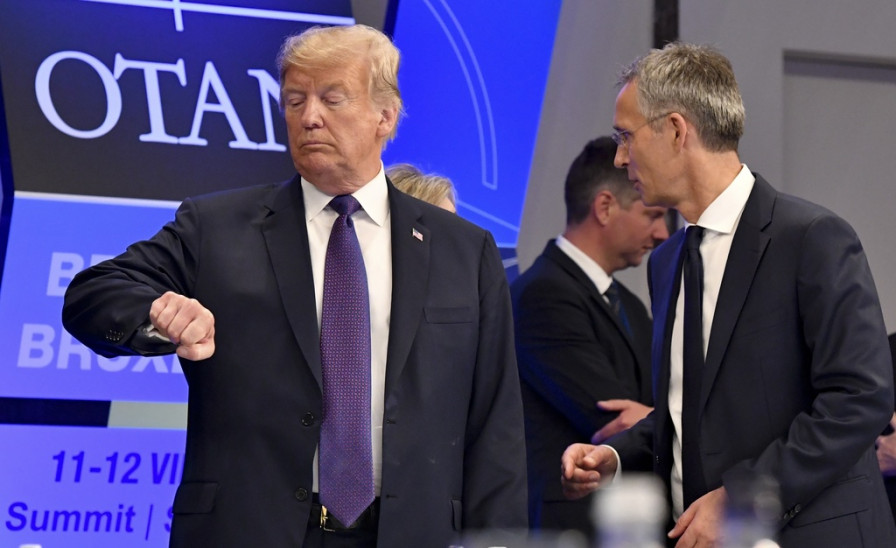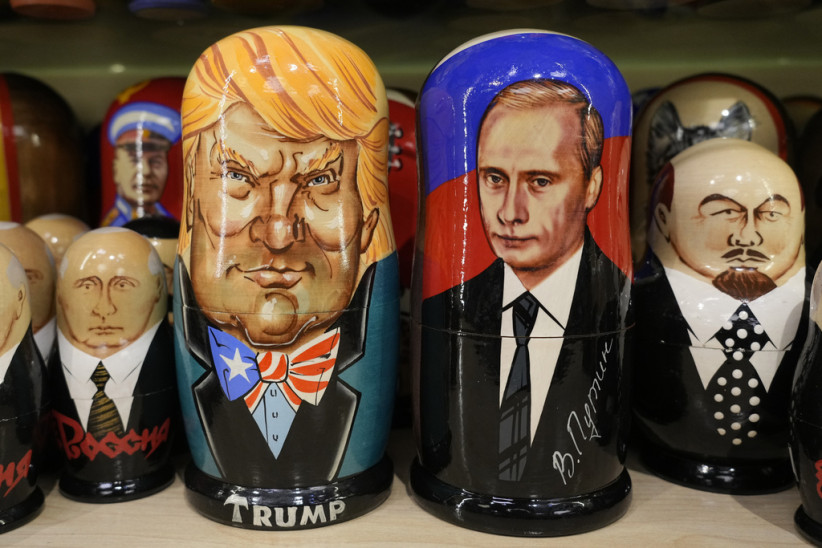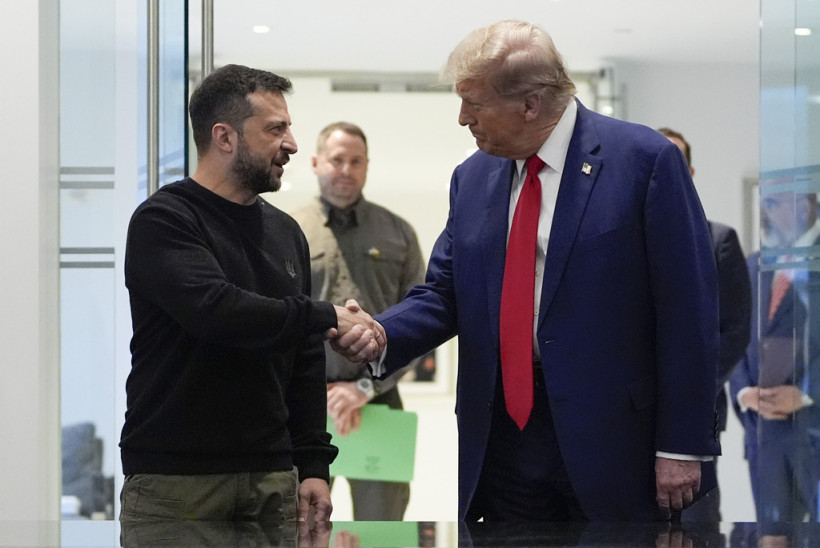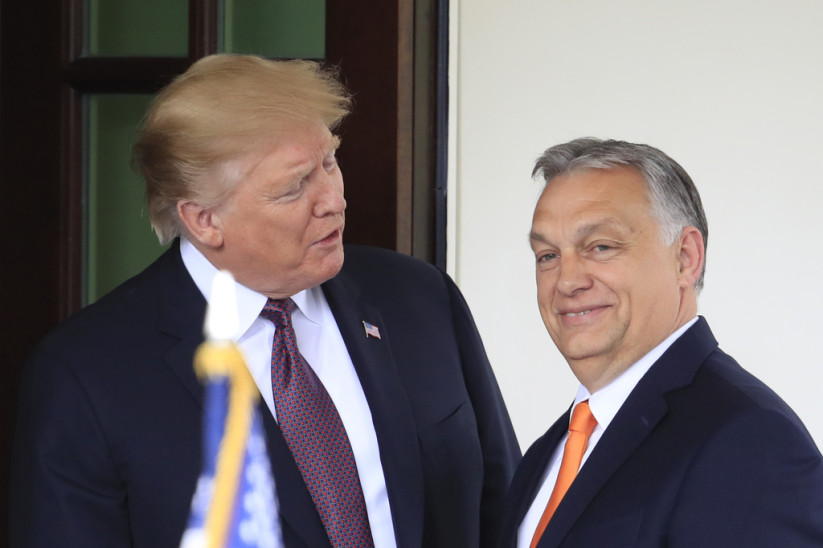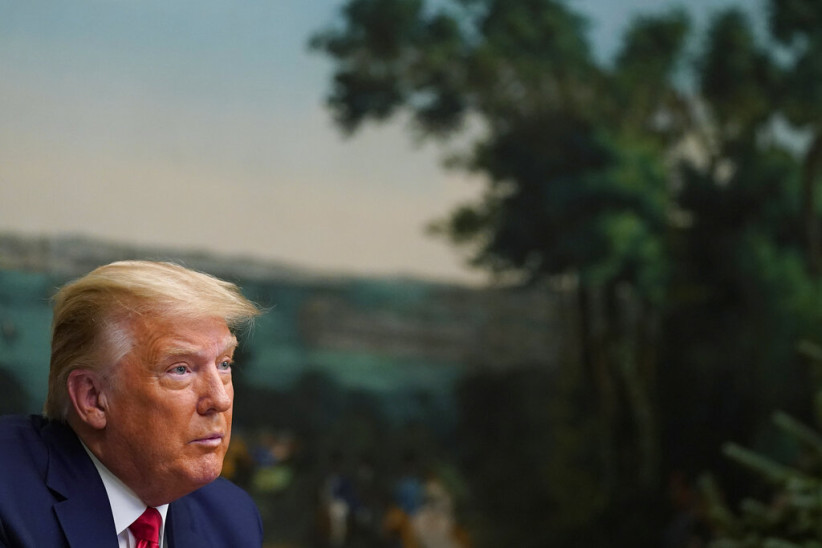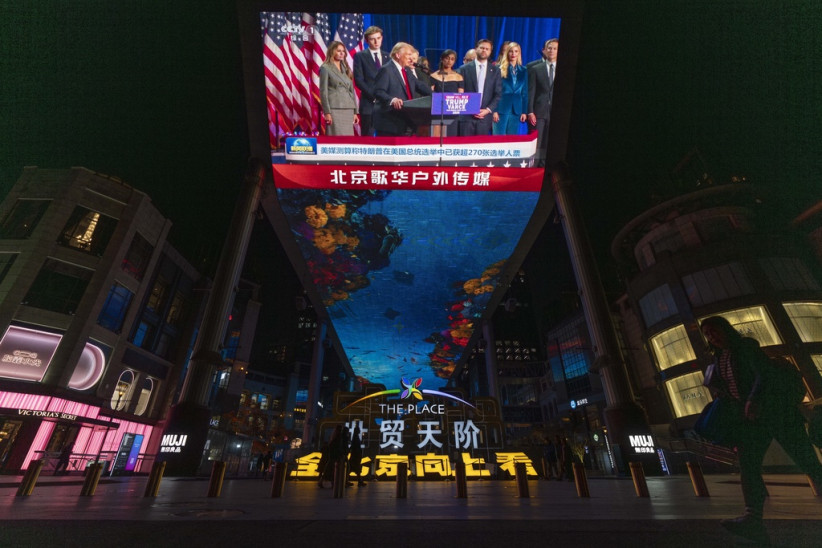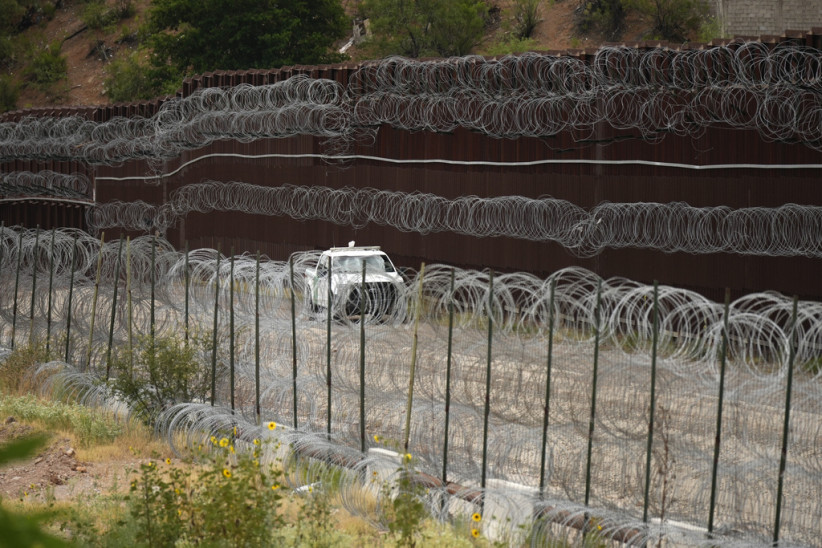What a second Trump term means for a number of critical global issues – The day after his victory in the US presidential election
Donald Trump is expected to return to the White House and people around the world are wondering how his second term will shake up global affairs again.
Trump’s supporters say his unpredictable behavior is a feature, not a fault, of his foreign policy to fend off bad actors and move on to the world’s most intractable problems, according to the Washingtonpost. “Predictability is a terrible thing,” Richard Grenell, Trump’s former director of national intelligence who is reported to be in the running for secretary of state, recently told the Financial Times. “Of course the other side [σε σχέση με τους εχθρούς της Αμερικής] it wants predictability. “Trump is not predictable.”
America’s allies are also struggling to predict what comes next, as Trump promises to reverse what he sees as a lack of respect for the United States on the world stage with his “America First” approach.
Israel and war in the Middle East
Trump has widely called for an end to the Israel-Gaza war, but has not articulated what he sees as the path to a ceasefire. In private conversations, he has expressed his support for Israeli Prime Minister Benjamin Netanyahu over the country’s attacks on Hamas in Gaza and Hezbollah in Lebanon – recently telling him to “do what you have to do”.
Many in Israel welcomed Trump’s first-term initiatives to relocate the US embassy. from Tel Aviv to Jerusalem and the recognition of the Golan Heights as part of Israel – decisions that angered the Palestinians and overturned decades of American foreign policy. A second term could “encourage Israel’s efforts to go even more aggressively without any restraint,” said Brian Katulis, a senior fellow for US foreign policy. at the Middle East Institute, told the Washington Post. “I don’t think the ceasefire [στη Γάζα] it’s his priority,” said James Carafano, a fellow at the right-wing think tank Heritage Foundation, who was part of the Trump administration’s first presidential transition team. “His priority is defending Israel,” Carafano added, and he likely “will not in any way constrain Israel in how it responds or threatens to respond” to Iran, Hezbollah or Hamas.
Trump signed the Abraham Accords in 2020, a set of treaties aimed at normalizing relations between Israel and four Arab states: the United Arab Emirates, Bahrain, Sudan and Morocco. He has said he intends to expand the deals when he is back in power, arguing that “everyone wants to be in them.” President Joe Biden’s efforts to expand the deals have been stalled by the war in Gaza, with Saudi Arabia demanding a viable path to a Palestinian state before signing on.
NATO
In his first term, Trump took a more aggressive approach to the transatlantic military alliance NATO, citing members’ excessive economic dependence on the United States. He has suggested during his campaign that he would encourage Russia to attack NATO countries that do not increase their defense spending and that he may consider leaving the 75-year-old alliance originally designed to counter the Soviet Union.
European politicians largely do not believe Trump would go ahead with withdrawal, although his former national security adviser John Bolton told The Post that he “never had the desire to leave.” Trump called for a “fundamental reassessment of NATO’s purpose and its mission. Meanwhile, in Brussels, NATO members have gone ahead with what Trump advocates, signing defense deals that have to do with increasing defense spending.
Aid to Ukraine – Possible concessions to Russia
Both Trump and his new running mate, Sen. Jay D. Vance, have expressed deep skepticism about US financial aid to Ukraine. “Every time the Ukrainian President, Volodymyr Zelensky, comes to this country, he walks away with $60 billion — he’s the biggest seller ever,” Trump said this year. (Washington has provided more than $64 billion in military aid since Russia began its invasion of Ukraine, the continent’s largest land war since 1945, while the European Union and the United Kingdom have provided a combined roughly $57 billion ).
But behind closed doors, many in Zelenskiy’s administration see an uptick in Trump’s victory, complaining that the current White House is too careful to avoid escalation with Russia and that their demands for stronger weapons and looser restrictions on their use have been delayed or rejected. Some admitted, however, that they are worried that Trump will push Ukraine to make territorial concessions – which Zelensky’s government has been staunchly opposed to – and would lead to further divisions within Europe. Trump has also boasted that he was able to settle the conflict – now in its third year.
The Kremlin appeared “comfortable” about who it wants in the White House, but Russian state media have been making flattering comments about Trump, who has claimed he has a “very good relationship” with Russian President Vladimir Putin and spoke with him up to seven times after leaving office.
But analysts note that Russia felt it did not gain significantly from the previous Trump administration, which led to a series of harsh sanctions against Moscow and disputes over the Nord Stream pipeline.
“Support for authoritarian leaders”
On the campaign trail, Trump continued to praise dictators and openly defy democratic norms — suggesting the military could be deployed in the U.S. against what he called “the enemy from within”. His rhetoric, including threats to a free press and past actions such as withdrawing from the United Nations Human Rights Council, could have a chilling effect internationally as global freedom declines around the world, experts say.
Rachel Beatty Riedl, director of the Center for Global Democracy at Cornell University, warned that a second Trump presidency would “likely encourage and provide support for authoritarian leaders,” pointing to his ties to Hungarian Prime Minister Viktor Orbán, who he is known for silencing critics and maintaining power through sham elections.
As Beijing grows increasingly aggressive in its words and actions toward Taiwan, Russell Hsiao, executive director of the Taiwan Global Institute, pointed to Trump’s statements this year that cast doubt on his willingness to defend the island’s democracy and misguided his claim that Taipei needs to pay the United States for defense. Such rhetoric could “fan the flames of skepticism” about American intentions at a time when Taiwanese people are “immediately threatened by disinformation aimed at undermining the credibility of the United States,” he said.
Trump, who has praised North Korean dictator Kim Jong Un, has made similar comments that South Korea should pay for US defense against Pyongyang – which has worried Seoul.
Climate
Politicians seeking to tackle global climate change – as extreme heat could render parts of Asia and Africa uninhabitable within decades – fear efforts will stall under Trump. He has called climate change a “hoax” and rolled back or repealed more than 100 regulations designed to protect US land, air and water during his last term as president. This time, Trump has pledged to immediately reverse dozens of Biden’s environmental rules and policies and stop enacting new ones.
In a campaign document, Trump pledged to withdraw again from the landmark Paris climate accord, arguing that it was an unfair burden on the United States. His withdrawal from the deal to cut carbon emissions caused global alarm among scientists and climate experts, and Biden rejoined it after his election in 2020. “We’re going to do it again,” Trump said in a recent interview. .
China
Trump has threatened to escalate economic attacks on Beijing and said he is considering measures widely seen as likely to trigger a global trade war. Trump has publicly floated the idea of imposing tariffs of 10 to 20 percent on nearly all imports, while in private discussions there has been talk of significantly increasing tariffs on Chinese imports of up to 60 percent.
Economists from both parties say this could cause massive upheaval in the US. and global economies, far exceeding the impact of trade wars in Trump’s first term. Supporters of Trump’s approach say the tariffs can help bring manufacturing jobs back to the United States, but in the past, some experts have found they have resulted in net job losses. An analysis by the Peterson Institute for International Economics found that his plan could cost the average American family more than $2,600 a year.
Wu Xinbo, director of the Center for American Studies at Fudan University, said such moves “will seriously damage trade ties between the two countries.” In China, high tariffs could lead to “reduced exports, rising unemployment, slower economic growth, shrinking GDP and a weaker” Chinese currency. It would also “deepen the Chinese’s negative view of the US,” he added.
Latin America
Trump pursued policies to limit legal immigration in his first term — and his positions during the campaign signal he would do so again. Near the top of Trump’s campaign agenda is a promise to “carry out the largest deportation operation in American history.” US authorities do not have the capacity to round up and deport millions of immigrants, but Trump has said he will use National Guard troops.
The United States and Mexico, in particular, could experience “catastrophic effects” as a result of mass deportations, according to a paper written in part by researchers at the Center for North American Integration and Development at the University of California, Los Angeles. The document notes that the two countries are “highly interdependent through dense migration, remittances and trade relations”.
Shortly before the election, Trump said he would slap tariffs on Mexico – America’s biggest trading partner last year – between 25 and 100 percent unless it did more to stop migration to the north.
Source :Skai
With a wealth of experience honed over 4+ years in journalism, I bring a seasoned voice to the world of news. Currently, I work as a freelance writer and editor, always seeking new opportunities to tell compelling stories in the field of world news.


